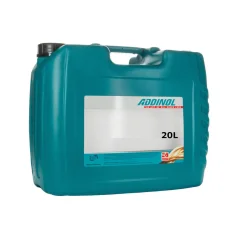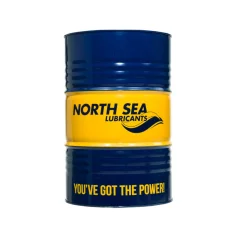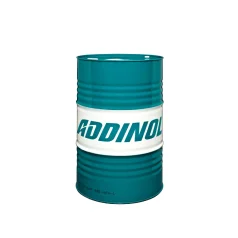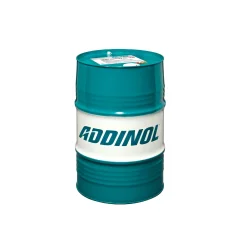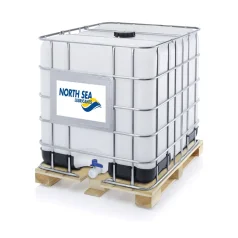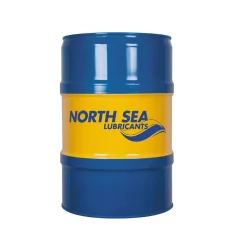Hydraulic Oils
(140)Our range of hydraulic oils
We offer a wide selection of hydraulic oils, indispensable in all hydraulic systems – from industrial machines and construction equipment to transport, energy, agriculture, aviation, and forestry. Hydraulic oils transfer power, reduce friction, prevent wear, extend component life, cool, and carry away impurities. Choosing the right oil ensures safe, efficient operation, reduced maintenance costs, and higher energy efficiency.
Verified manufacturers of hydraulic oils
At M&M Intercom we cooperate with established producers that guarantee the highest quality and compliance with global standards. Our range includes oils from Addinol, Agip, Castrol, CAT, Mobil, NSL, Orlen, Q8, and Shell. This wide selection allows us to provide the optimal solution for each application – from standard to specialized oils.
Packaging and container sizes
Because customer needs vary, we supply hydraulic oils in:
- containers from 1 liter to 1000 liters,
- weight units from 17 kg to 860 kg.
This ensures suitable solutions for both smaller users such as workshops and service departments, as well as large industrial plants requiring bulk volumes.
Viscosity and operating characteristics
Different viscosities allow oils to be used in various working conditions, where lubrication must be adapted to system speed, temperature, and load.
Quality standards – ISO and DIN
All hydraulic oils in our range comply with demanding international standards, ensuring safe use, long service life, and reliable protection.
1. ISO 6743 / ISO 11158 – hydraulic oil classes
- HL – protection against corrosion and oxidation.
- HM – anti-wear additives (similar to DIN HLP).
- HV – high viscosity index oils for wide temperature ranges.
- HG – anti-friction oils for systems requiring regulation precision.
- HR – improved oxidation and aging resistance.
- HS – improved shear stability.
Most common: HM (standard AW oils) and HV (variable temperature oils).
2. ISO VG – viscosity grades (ISO 3448)
Based on kinematic viscosity at 40 °C. Examples: ISO VG 32, 46, 68 (most common).
3. ISO 4406 – oil cleanliness
Defines contamination levels with solid particles, classified with three numbers (e.g. 18/16/13).
4. ISO 15380 – bio-hydraulic oils
Defines eco-friendly hydraulic oils (HEES, HETG, HEPG, HEPR). Used in forestry, construction, and water infrastructure.
5. Other ISO standards
- ISO 20763 – non-flammable oils (water emulsions, synthetic).
- ISO 12922 – oils for fire-risk systems (HFA, HFB, HFC, HFDR, HFDU).
DIN standards
- DIN 51524-1 (HL) – mineral oils with corrosion and oxidation inhibitors.
- DIN 51524-2 (HLP) – anti-wear oils, standard for most machines.
- DIN 51524-3 (HVLP) – high VI oils for wide temperature changes.
- DIN 51524-2 HLPD – detergent/dispersant oils for contaminated systems.
Types of hydraulic oils and their use
- HL – basic mineral oils for general systems.
- HLP – anti-wear oils for higher loads.
- HLPD – detergent oils binding water and particles.
- HVLP – high VI oils for wide temperature range.
- HVLPD – high-performance oils combining stability, wear protection, and cleaning.
Special versions
- Biodegradable hydraulic oils – for sensitive environments (forestry, construction, agriculture).
- Food-grade hydraulic oils – safe for use in food industry equipment.
Benefits of quality hydraulic oils
- Extended life of hydraulic components,
- Protection against corrosion and oxidation,
- Reduced wear and friction,
- Fewer failures and downtimes,
- Stability at low and high temperatures,
- Improved energy efficiency.
Use of hydraulic oils in industry
- Mechanical engineering – CNC machines, presses, injection machines.
- Construction – pumps, excavators, loaders.
- Energy – turbines, compressors, hydraulic power plants.
- Transport – lifts, forklifts, logistics systems.
- Agriculture – tractors, harvesters, forestry machines.
Correct hydraulic oil selection is key to reliable operation in all these sectors.
Why choose hydraulic oils at M&M Intercom?
We provide a broad range from renowned manufacturers and standardized solutions, as well as:
- Packaging from small cans to IBC tanks,
- Oils compliant with ISO and DIN standards,
- Special solutions for food industry and eco-sensitive uses,
- Expert advice and technical support.
Frequently Asked Questions (FAQ)
- What are hydraulic oils and why are they used? Special lubricants designed for power transmission in hydraulic systems. They reduce friction, protect against wear, prevent corrosion, and dissipate heat.
- Which manufacturers of hydraulic oils does M&M Intercom offer? Addinol, Agip, Castrol, CAT, Lotos, Mobil, NSL, Orlen, Q8, Shell.
- What packaging sizes are available? From 1-liter containers for workshops to 1000 liters (or 17–860 kg) for industrial plants.
- What viscosities are available? ISO VG grades (e.g. 32, 46, 68), selected according to system design and conditions.
- Which ISO standards apply? Compliance with ISO 11158, ISO 3448, ISO 4406, ISO 15380, etc.
- What do HLP, HVLP, and HVLPD mean?
HLP – mineral oils with anti-wear additives,
HVLP – high VI oils for temperature variability,
HVLPD – high-performance oils with detergents and water-binding - Are biodegradable oils available? Yes, designed for agriculture, forestry, and construction.
- Do you offer food-grade hydraulic oils? Yes, resistant to moisture, oxidation, and high temperatures, safe for food industry use.
- How to choose the right hydraulic oil? Depends on viscosity, load, operating temperature, environment, and OEM standards. Our experts provide consultation.
Email: [email protected]
Phone: +386 1 29 27 960
With years of market presence, expertise and experience, we find the most appropriate and cost-effective technical solution for your application.
Custom-made seals with precision up to 0.1 mm for all industries. High-quality materials, adaptable shapes, and fast execution. Solutions for extreme conditions.
